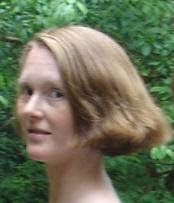Literarily, rhophalic describes a passage "in which each word contains one syllable more than the word immediately preceding it."
I recently attempted a poem based on the Fibonacci sequence, where the number of syllables per line increase quickly. (Interestingly, the number sequence itself has poetic origins.) Five-syllable lines are easy for me, but eight and thirteen were tough. Increasing syllables in each word, though, that's pretty challenging.
- I'm writing sentences multiplying syllabically.
- Walk softly, carrying knuckle-dusters empoweringly.
- Peach apple banana chirimoya marionberry macadamia-nut
Can you wax rhophalic? Give me your best shot.
*In the OED since 1986! Look here for origin and meaning.
















